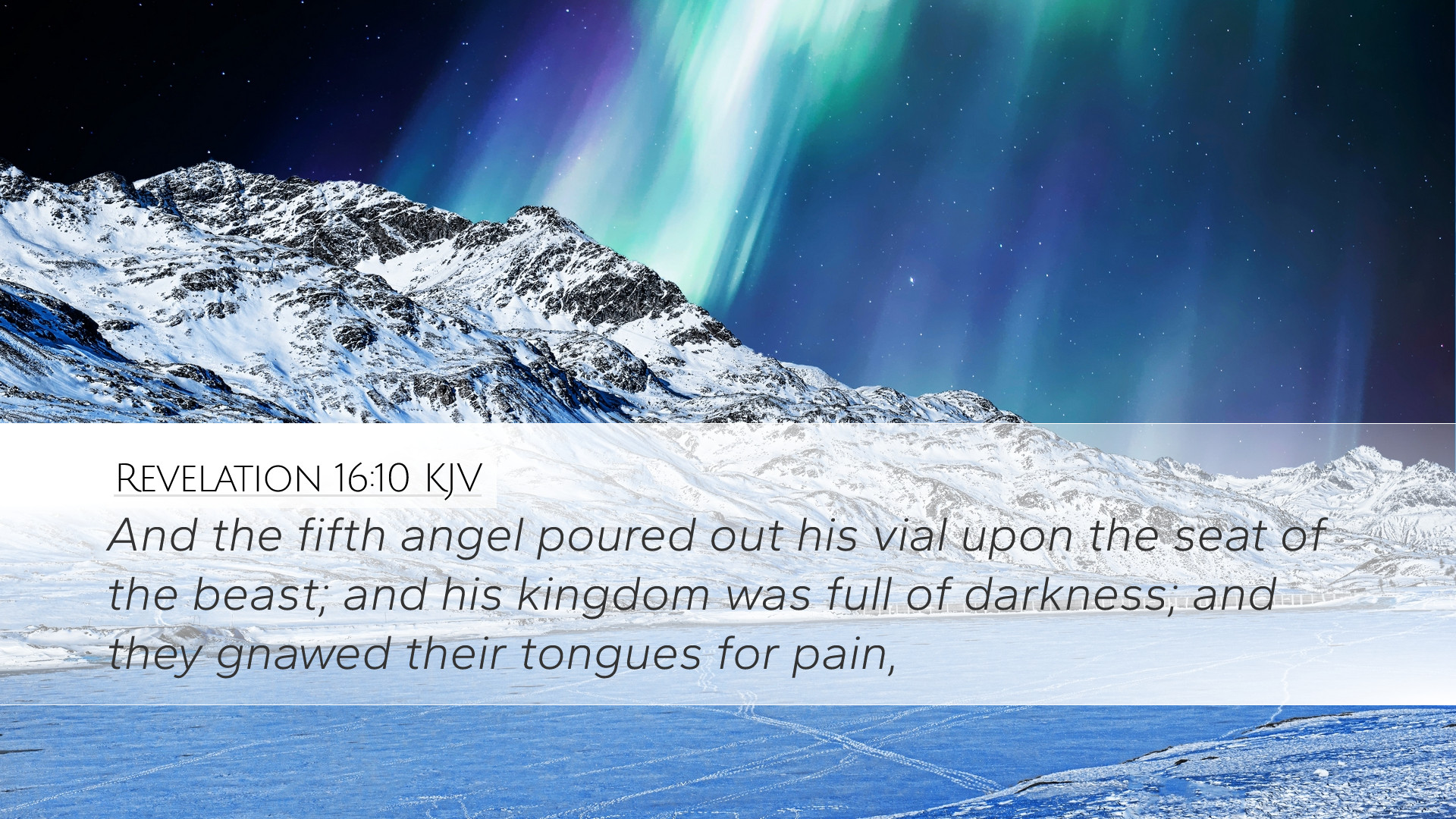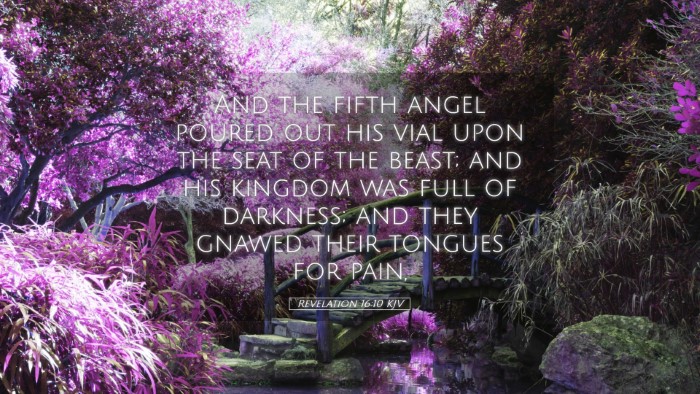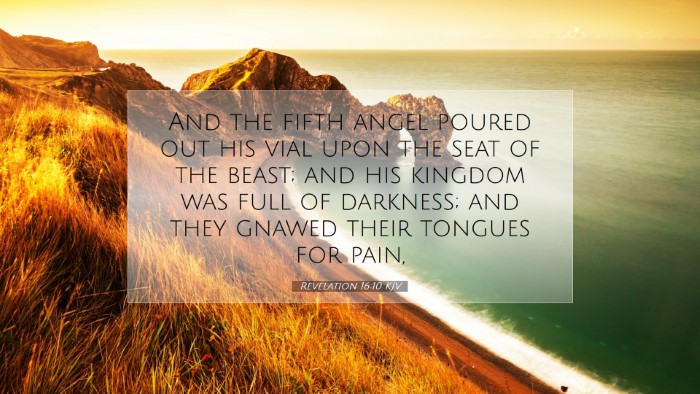Commentary on Revelation 16:10
Revelation 16:10 states: "And the fifth angel poured out his vial upon the seat of the beast; and his kingdom was full of darkness; and they gnawed their tongues for pain."
Overview
This verse follows a series of judgments that highlight divine retribution against evil and the ultimate end of the ungodly. In this passage, John describes the fifth bowl judgment, which brings about profound darkness in the empire of the beast, signifying severe spiritual and physical anguish.
Contextual Insights
Understanding Revelation 16:10 requires examining the broader context of the book of Revelation, where various visions illustrate the struggle between divine authority and human rebellion against God.
-
Divine Judgment:
This judgment reflects God's response to the wickedness of humanity, particularly as embodied in the figure of the beast, which many scholars identify with oppressive political systems opposed to God.
-
The Beast's Authority:
The beast symbolizes collective power dedicated to rebellion against God. Its “seat” or throne represents the place where this authority operates, which is now subjected to divine wrath.
Commentary from Matthew Henry
Matthew Henry notes that the “fifth angel poured out his vial,” indicating a deliberate act of judgment. He emphasizes that the darkness experienced was not just physical but also spiritual, illustrating the consequences of rejecting God's light. Henry elaborates on the pain associated with this darkness, suggesting it corresponds to both remorse and despair among the recipients of this judgment.
Commentary from Albert Barnes
Albert Barnes views the “seat of the beast” as emblematic of the seat of power which promotes idolatry and evil. He remarks on the intense suffering depicted by “gnawing their tongues for pain,” an image that emphasizes the severity of the torment. Barnes proposes that this represents the internal anguish felt by those who have aligned themselves with the beast, realizing too late the folly of their choices.
Commentary from Adam Clarke
Adam Clarke asserts that the darkness symbolized represents not only absence of light but also absence of hope and comfort. He highlights the gnawing of tongues as a vivid depiction of pain, suggesting that such torment serves as a reminder of the eternal consequences of sin and rebellion against God’s rule. Clarke connects this to natural disasters and calamity, where spiritual blindness leads to destruction, paralleling the darkening judgments seen throughout history.
Theological Implications
This passage invites deep theological reflection on the nature of God's judgment. Several key themes emerge:
-
The Sovereignty of God:
God's sovereign authority is evident as He executes judgment through the vessels of the angels, indicating that all creation is accountable to Him.
-
The Nature of Sin:
The intense suffering of those aligned with the beast reiterates the destructive nature of sin, which ultimately leads to spiritual and physical desolation.
-
Hope and Judgment:
While this judgment seems dire, it also serves as a reminder of the ultimate hope found in Christian redemption and the assurance that God’s justice will prevail.
Practical Applications for Ministry
For pastors and theologians, Revelation 16:10 offers foundational truths relevant to contemporary ministry:
-
Confronting Darkness:
This scripture calls for a courageously confronting spiritual darkness in our communities, helping others to see the consequences of sin while offering the light of the Gospel.
-
Hope in Judgment:
Pastors can communicate that even in judgment, God’s grace is evident. There’s an opportunity for redemption available to all who turn to Him.
-
Teaching on Accountability:
This passage serves as a reminder that humanity is held accountable for choices made. Leaders should emphasize personal responsibility before God.
Conclusion
Revelation 16:10 stands as a sobering yet profound glimpse into the consequences of rebellion against God. The insights from various public domain commentators enrich our understanding of divine judgment, calling us towards deeper reflection on our spiritual vitality and relationship with the light of Christ. The vivid imagery accompanying this passage serves as both a warning and a call to repentance, urging believers to remain steadfast in faith amidst the struggles and darkness of this world.


